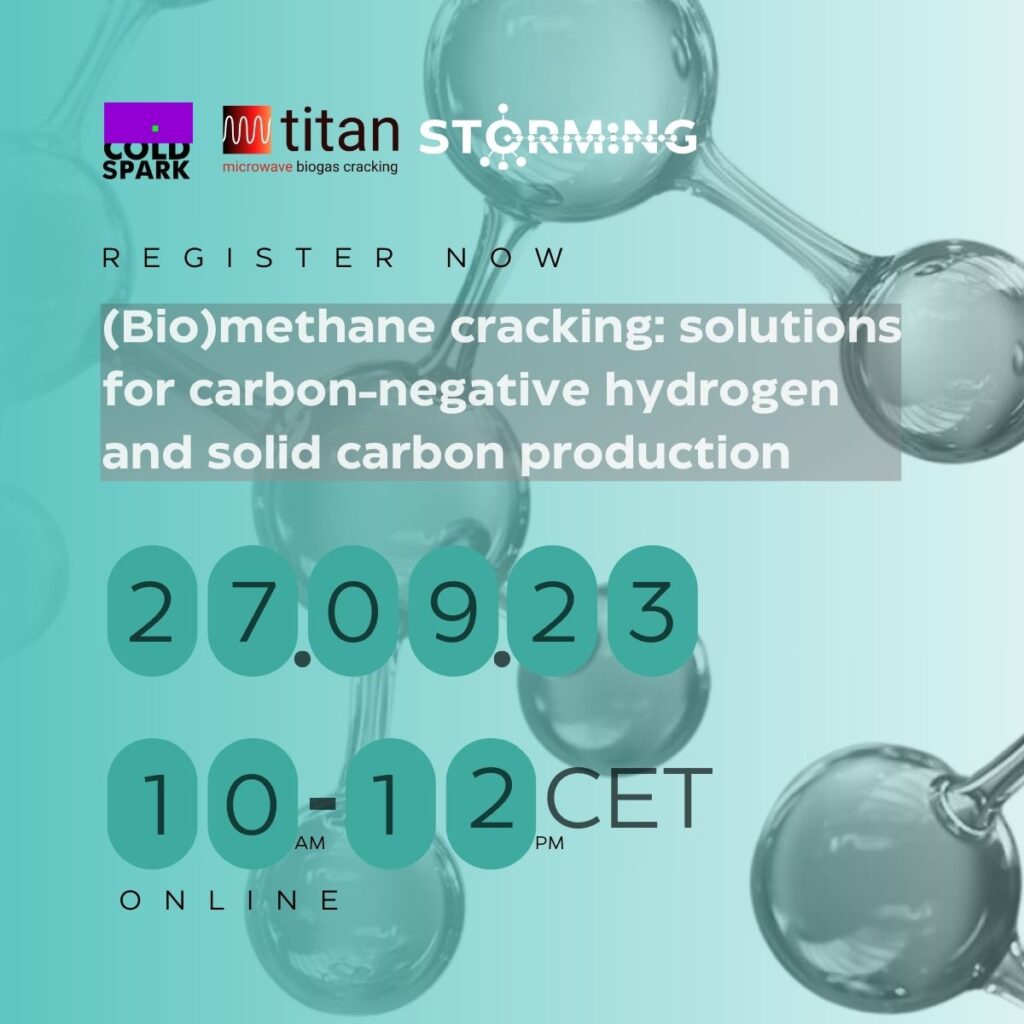
The successful (Bio)methane Cracking Webinar organized by three EU-funded projects (COLDSPARK, STORMING and TITAN) took place Wednesday 27 September, gathering experts and innovators across Europe from both industry and academia. This webinar marked a substantial audience of 111 people,
showcasing the interest in the pursuit of sustainable energy solutions, also showcasing a high level of engagement with numerous questions and discussions.
The webinar provided a platform for representatives of different stakeholders of the (bio)methane cracking field to hear from policy messages from the European Commission to technical solutions offered by the organising projects to unveil their pioneering technological developments for converting methane into usable hydrogen and solid carbon materials. The event highlighted the critical role of green hydrogen production in achieving carbon-neutrality objectives by 2050.
Three blocks took place:
1. Setting the Scene:
The event started with a comprehensive overview of the policy landscape for (bio)methane cracking and the picture of the current research and innovation activities in the field, featuring insights from distinguished speakers:
– Piero Carlo Dos Reis, from European Commission’s DG CLIMA C1, highlighted the policy side of the methane and hydrogen sectors, and the gaps and pitfalls to overcome during the upcoming years.
– Luigi Crema, from Hydrogen Europe, presented on the role of research across the whole hydrogen value chain, the upcoming developments and some limitations and constraints for the full development of the expected hydrogen sector in Europe.
2. Solutions
The heart of the webinar featured presentations from the innovative projects, unveiling their groundbreaking technologies:
– Terje Hauan presented Cold plasma technology on behalf of COLDSPARK.
– David Farrusseng discussed Microwave-heated catalytic reactors, representing TITAN.
– Patricia Benito introduced Structured, iron-based reactors, the contribution of the STORMING project.
3. Panel Discussion
Following the presentations, a dynamic panel discussion moderated by Dusan Jakovljevic, Policy Director at, EEIP took place. The panel discussion was focused on exploring synergies, replication potential, and the technology’s uptake in the sector. The panel comprised esteemed experts and representatives:
– Marina Pasteris, EBA Technical and Project Officer
– Anton Scholten, Hygear
– Zhixin Yu, UiS
General conclusions
In conclusion, this webinar stands as a remarkable gathering of innovators, policymakers, and industry leaders, all working collectively towards a greener and more sustainable energy sector. The discussions and presentations unveiled the immense potential of (bio)methane cracking in advancing carbon-negative hydrogen production and solid carbon materials. The event organizers extend their heartfelt gratitude to all participants and speakers for their active engagement in this dialogue.
